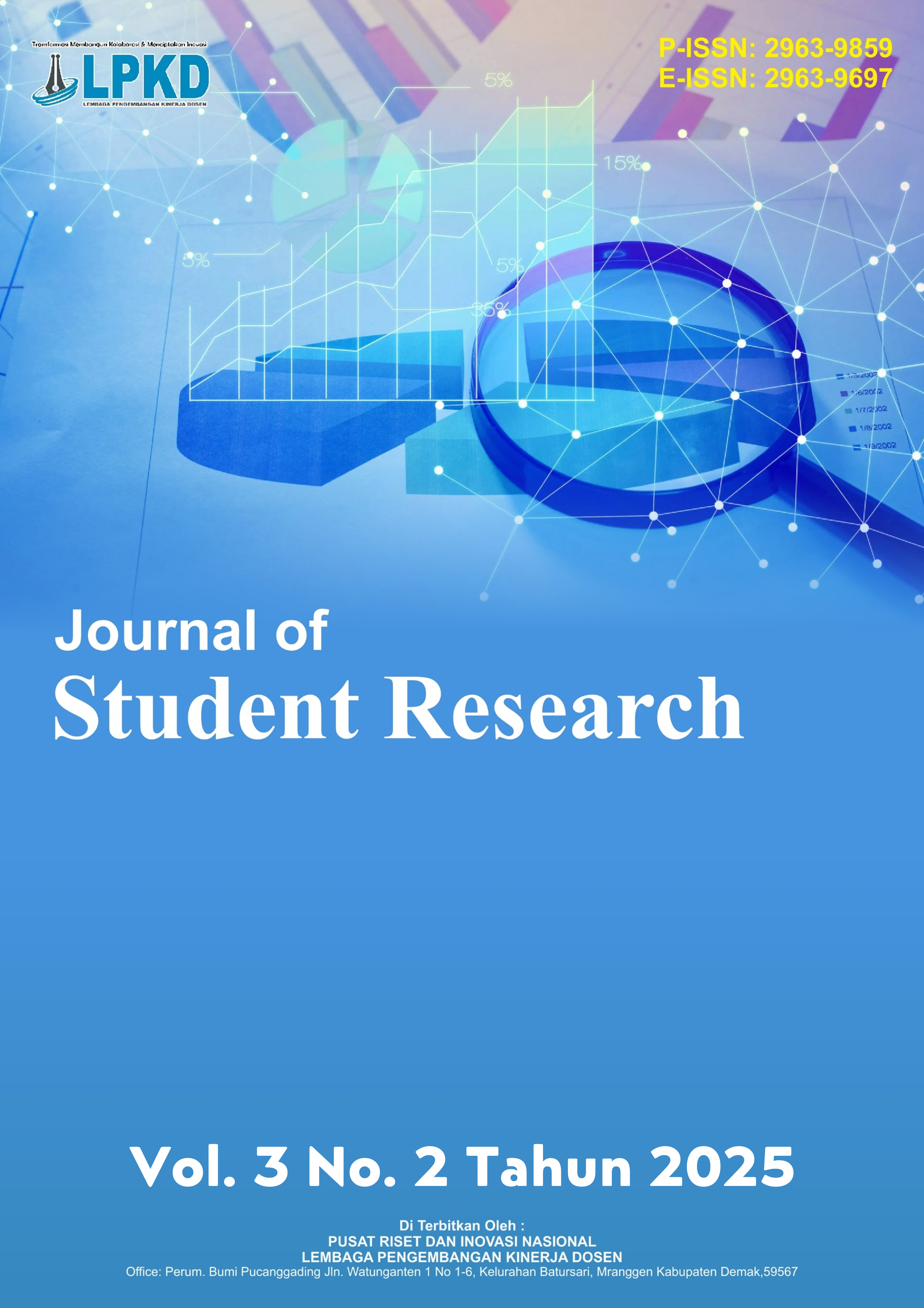Islam Sebagai Rahmatan Lil Alamin
DOI:
https://doi.org/10.55606/jsr.v3i1.3475Keywords:
Islam, Rahmatan Lil Alamin, Love in IslamAbstract
The background to the Islamic concept as rahmatan lil alamin or mercy for all of nature has a broad and deep meaning. Islam is expected to make a positive contribution to all living creatures and ecosystems on earth, not just limited to Muslims. The challenges faced today, such as the social, economic and environmental crises, demand a deeper understanding and real application of this principle. However, in reality, the understanding and application of this concept is often limited or distorted, thus hampering Islam's role in creating a peaceful, just and prosperous life. The research aims to clarify and expand understanding of the concept of Islam as rahmatan lil alamin and to explore its application in the modern era. This research aims to explore the core values of Islamic teachings that support this concept, including the principles of humanity, tolerance and solidarity. The methods used include literature studies, in-depth interviews with religious and community leaders, as well as case study analysis from various Islamic communities. The research results show that the application of Rahmatan Lil Alamin's values can overcome various social challenges, such as intolerance and discrimination, as well as encourage interfaith dialogue. It is hoped that this research can provide insight and practical recommendations to strengthen the role of Islam in creating a more peaceful and just world
References
Alhamida, A., & Kusuma, A. D. W. (2024). Analisis metode pendidikan Islam dalam sudut pandang Al-Qur'an. 5(2), 58–69.
Aryandika Firmansyah, M., Fathoni, M. Y., Wismanto, W., Bangun, D. H., & Nasution, M. H. (2024). Pandangan Islam dalam memaknai hakikat manusia. Jurnal Manajemen Dan Pendidikan Agama Islam, 2(1), 88–103. https://doi.org/10.61132/jmpai.v2i1.63
Aziz, F. A., Febriyani, F., & Asshiddiqei, M. R. W. (2024). Analisis nilai-nilai dasar Keislaman sebagai agama rahmatan lilalamin. 758–766.
Aziz, F. A., Febriyani, F., Wismanto, W., & ... (2024). Analisis nilai-nilai dasar Keislaman sebagai agama rahmatan lilalamin. MARAS: Jurnal …, 758–766. http://ejournal.lumbungpare.org/index.php/maras/article/view/271
Azzahra, I. N., & Azzahra, M. W. (2024). Analisis tentang konsep dasar pendidikan Islam (perspektif Al-Hadits). 5(2), 122–129.
Dewanda, A. A., Lubis, C. A., Zahara, H., & Putri, R. E. W. (2024). Analisis kaidah metode pembelajaran Al-Qur'an dalam pendidikan Islam. 2(3).
Dwi Ananda, H., Khotimah, H., Pramudya Ibni, N., & Utari, R. N. W. (2024). Analisis tentang permasalahan kekinian yang timbul dalam penyelenggaraan ibadah haji sebagai bentuk pengabdian tertinggi pada Allah dalam agama Islam. Dalam buku The Hajj: Pilgrimage in Islam oleh Eric Tagliacozzo. 2(3), 52–60.
Faturrchman Saleh, F., Mubarok, F., Ayussi, M. N., & Kenedi, W. R. W. (2024). Lemahnya pengetahuan dan penerapan ilmu tentang bahayanya syirik bagi kehidupan. 2(1).
Fitri, A., Nursikin, M., & Amin, K. W. (2023). Peran ganda guru pendidikan agama Islam dalam membimbing siswa bermasalah di SD Islam Al-Rasyid Pekanbaru. Journal on Education, 5(3), 9710–9717. https://jonedu.org/index.php/joe/article/view/1786
Hasan, W. A., Ibadah, F., & Muamalah, A. (n.d.). AL-ISLAM.
Mahessa, A., Zakir, Z. L., Pratiwi, Y., & Dayati, R. W. (2024). Model pembelajaran agama Islam pada pendidikan inklusi anak berkebutuhan khusus (autis). 2(2).
Rahmasari, R., Rahmasari, R., Gimri, F. D., & Dewianti, A. F. W. (2024). Penanaman nilai-nilai Islam dalam upaya pembentukan karakter melalui pendidikan agama Islam. 2(3).
Ramadhani, W. A., Novita, N., Sari, A. P., Fakhlefi, S., & Wismanto. (2024). Analisis tentang perspektif guru sebagai pendidik dalam tinjauan Al-Qur’an. IHSANIKA: Jurnal Pendidikan Agama Islam, 2(2), 1–16.
Rinaldho, R., & Pratama, R. A. W. (2024). Penerapan pembelajaran pendidikan agama Islam terhadap anak berkebutuhan khusus di sekolah luar biasa. 3(2), 13–25.
Sari, R. K., Ulfani, S. M., Lestari, A., Hasanah, D. P., & Wismanto. (2024). Kesempurnaan akhlak dan pribadi Nabi Muhammad Rasulullah Sallallahu ’alaihi Wasallam. Muhammad penelitian ini dilakukan dengan menggali berbagai dimensi sosial keagamaan. 2, 253–265.
Susanto, B. W., Lasmiadi, A. M., & Wismanto, A. Z. (2023). Strategi guru pendidikan agama Islam dalam membentuk akhlak berkomunikasi peserta didik. 12, 327–337.
Wismanto, A. H. (2018). Iman kepada hari akhir. In Pendidikan Agama Islam (Cahaya Firdaus Pekanbaru).
Wismanto, W., & Tauhid, Z. A. (2023). Upaya pencegahan budaya syirik di media sosial melalui pendidikan Islam berbasis Al-Islam Kemuhammadiyahan. 12, 338–350.
Downloads
Published
How to Cite
Issue
Section
License
Copyright (c) 2024 Journal of Student Research

This work is licensed under a Creative Commons Attribution-ShareAlike 4.0 International License.









